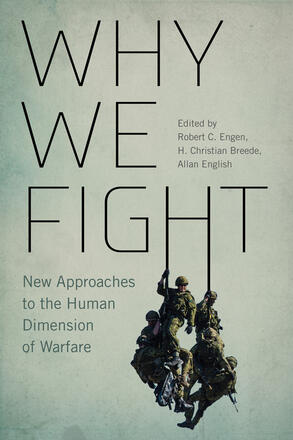
Why We Fight
New Approaches to the Human Dimension of Warfare
An urgent reappraisal of the human dimension of Canada's wars and conflicts.
Description
For decades, the Canadian Armed Forces has used the work of foreign scholars and writers in its professional military education to try to understand the human dimension of warfare: why and how people are motivated to fight, and how they behave once they do fight. Yet the specific Canadian context, experience, and perspective are often lost in favour of appeals to universal truths. The first major Canadian study of combat motivation in almost forty years, Why We Fight redresses this imbalance by presenting some of the best new work on the subject. Bringing together top military practitioners and scholars to discuss some of the most controversial issues of modern warfare, Why We Fight examines the face of battle as experienced by Canadians. It explores sexual violence in war, professionalism, organizations, leadership, shared intent, motivation in extremis, and the toxicity of the "warrior" culture. Its chapters offer key insights on combat motivation theories, the modern operating environment, and the collective and individual identities of the men and women who fight for Canada. Many worry that technology is leading us towards a post-human age, particularly in war. Why We Fight affirms the centrality of the human being in warfare in Canada's past, present, and future.
Reviews
"Why We Fight offers a rich, wide-ranging discussion of combat motivation, in both historical and contemporary contexts, demonstrating how historical and current studies can shed light on contemporary challenges and debates within the Canadian Forces." Geoffrey Hayes, University of Waterloo